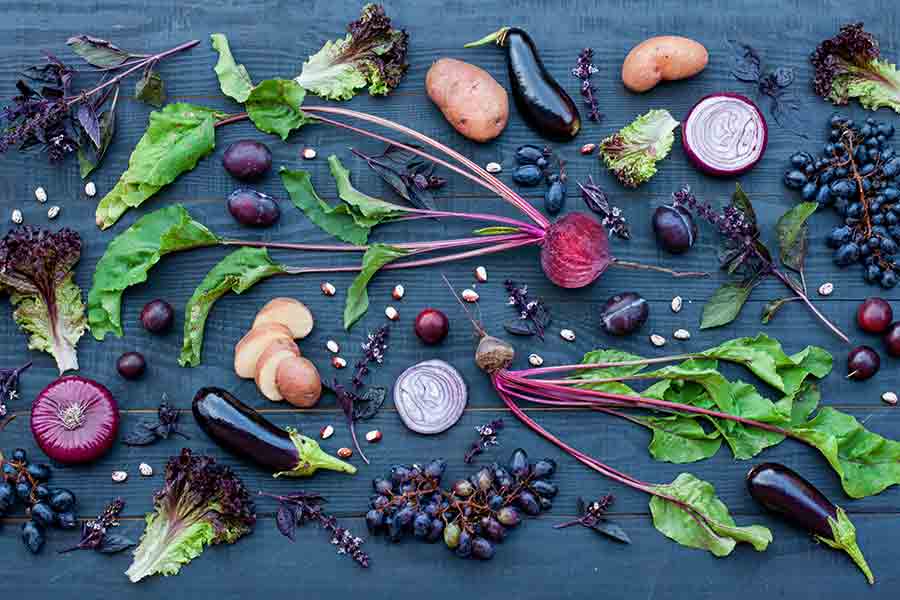Dream Journal
Two Dreams is a wellness program led by Andrea G. Barthwell, MD, FASAM that provides individualized care for those who dream of recovering a healthy lifestyle.
 Note From Dr B.
Note From Dr B.
In accordance with this month’s theme of positive productivity and improving self-esteem, take a moment to reflect on your thoughts and and beliefs. Think about any situations that may be troubling you and see if there is a way to address that issue. Notice the self-talk: Is it negative? Is it rational or irrational? Bringing attention to your inner dialogue and making an effort to think positively will go an extremely long way to helping you feel better and more confident.
Sincerely,
Dr. B
Monthly Promise
#6: “That feeling of uselessness and self-pity will disappear.”
By: Brett Dunning, TDOB Clinical Director
In working with clients who are new to, or back in recovery, it is clear to me that in their active addiction they utilized introspection, self-reflection, and goal identification. An inner voice summoned these clients to make changes though the sound of this voice became softer as the individual experienced either “highs” from drug anticipation or from drug use. As their addictions progressed this voice became louder and louder and could no longer be ignored. Many clients have identified with me that their drug or alcohol use progressed to the point where they were only using to quiet the voice that confirmed to them that they were useless. Clients expressed to me this voice was so strong that simply looking at a loved one or family member who knew their potential was a reflection which heightened this voice and they clearly heard the message, “You’re Useless” without the family member or loved one whispering one word. Their introspection, self-reflection, and goal identification was their conscience attempting to battle the grips of addiction and instill life changes.
Individuals who have been fully detoxified from mood altering substances continue to experience the feeling of uselessness they experienced in active addiction; these feelings can last for years after the last use if they do not receive the proper help. Often times this is because the feelings of uselessness have become so hard-wired into that individual’s thinking patterns that the only way he or she can figure out how to cope with these thoughts is through self-pity (“nobody understands me”).
It is apparent to everyone I know that I believe in the healing of 12-Step fellowships. With every day that passes as a therapist I become more confident that the combination of treatment and 12-Step involvement provide the most effective mean for treatment to addiction. It is truly amazing to witness the changes that happen when a structured schedule is maintained and mood altering chemicals are eliminated. The feelings of uselessness and self-pity are minimized. I witness individuals who are useful to their peer members by simply saying, “Good Morning” to one another without judgment or resentment. In the group process therapy sessions individuals allow themselves to be vulnerable to others and peer members are given the opportunity to be useful due to this honesty. I am proud to work at Two Dreams Outer Banks because I often experience the clients seeing the feelings of uselessness and self-pity disappear quickly simply by being a member of the peer community, most of the time they do not recognize this process, they only know they feel better about themselves.
News Highlights
States Join Together to Address Opioid Issue
By: Jon Oelke, TD Program Manager
Typically, those seeking recovery need help finding resources that allow them to achieve positive productivity. To that end, several states in New England have taken a large step in making those resources easier to find. Governors from Rhode Island, Maine, New Hampshire, Vermont and Connecticut have banned together to develop and enact a plan to work across state boundaries to better address growing prescription opioid problems in their states. Namely the plan aims to better monitor the writing of opioid prescriptions along with providing expanded access to addiction treatment. According to John Eadie, director of the Prescription Drug Monitoring Program Center of Excellence, a Brandeis program, this is the largest cross-state collaboration to thwart opioid abuse in America. If a plan can be developed, this could go a long way to helping thousands more people find their path to positive productivity.
THE 3P’S
mental peace – physical well-being – personal productivity
GOOD MOOD FOOD
By: Kara Hamilton
What you eat plays a crucial part in how you feel, and what you are able to do. In accordance with this month’s theme, we wanted to focus on tips that will help you be more productive and feel happier.
Unlike the usual productivity tips involving to-do lists, new exercise routines, and finding your true passion, I wanted to focus this month on something that is relatively easy to change and understand: what we eat. Here are tips on finding the foods that have been scientifically proven to make you feel happier based on the vitamins and minerals that they provide.
And the big bonus? Most of these foods are easily accessible and affordable, and some might already be a part of your diet.
Chromium
What it does: Increases serotonin, norepinephrine and melatonin. Effective for the treatment of depression.
- Foods to Eat:
- Broccoli
- Barley
- Grape juice
- Green Beans
- Oats
Iron
What it does: Helps prevent fatigue, apathy and mood change associated with depression.
- Foods high in Iron:
- Instant oatmeal
- Soybeans
- Swiss chard
- Cumin
- Parsley
- Turkey (dark meat)
Magnesium
What it does: Decreases stress, balances mood, increases happiness.
- Foods high in magnesium:
- Almonds
- Cashews
- Pumpkin seeds
- Peanuts
- Edamame
Omega-3
What it does: Fights depression; improves memory and energy
- Foods high in Omega-3:
- Atlantic Salmon
- Flax seeds
- Walnuts
- Brussel sprouts
- Chia seeds
Calcium
What it does: Regulates mood, specifically PMS-related depression in women.
- Foods high in calcium:
- Tofu
- Collard greens
- Yogurt
- Milk
- Kale
Vitamin D
What it does: Wards off depression (especially important in the wintertime)
- Foods high in Vitamin D:
- Salmon
- Milk
- Eggs
- Mushrooms
Sid Says
By: Sid Miltz, Executive Clinical Director
At Two Dreams, part of our creed states, “This is Two Dreams – Making the Deliberate Choice to Love, to Work to Play”. Although Dr. B. composed this in reference to the clients that come to Two Dreams for treatment, I also took this to heart. I love this part of the creed.
As a recovering co-dependent I often only thought of productivity as work. This is wrong. Play and enjoying yourself is also productive. Play for people in recovery is about learning how to give yourself the gift of taking care of yourself. It is important. Get creative. Try things you have not tried before. Research says that people who are creative actually report feeling happier and state that they live a more satisfied life. I would imagine it is hard to feel happy and satisfied and be full of self-pity. It is odd how we can almost get addicted to the negative emotions. Sometimes all we need is a reminder of how good we really have it. Summer is here! Enjoy this beautiful world. Get outside. Take a vacation. Sit on a park bench. MOVE! Take care of yourself by going out to play. Play and be productive. Live life!
Thank you to our content contributors
For admissions and all staff call us at: (504) 510-2331
© 2014 Two Dreams. All Rights Reserved.

 Note From Dr B.
Note From Dr B.

